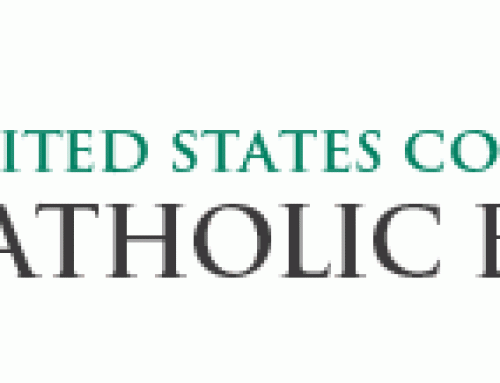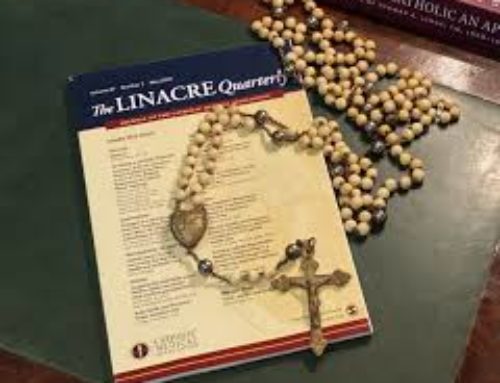Marking the 50th Anniversary of Humanæ Vitæ
On July 25, 1968, the Encyclical letter Humanæ vitæ of Blessed Paul VI was officially published. This text, addressing the transmission of human life through married couples, continues to be foundational and influential to the work of MaterCare International (MCI). It reminds us of the vitally important nature of marriage, the rewards of true acts of love that come from a corresponding faithfulness to the moral order, and the opportunity for married couples to repercuss God’s love. All of this aids in a better understanding of how to fully incorporate the family into the practice of good maternal health, a pillar of MCI’s mission.
Marking this anniversary, the Commission for Doctrine of the Canadian Conference of Catholic Bishops (CCCB) has issued a statement below entitled The Joy of Married Love which we at MCI fully endorse and encourage all Catholic married couples to read together. We also encourage reading the full Encyclical letter Humanæ vitæ which can be found here: http://w2.vatican.va/content/paul-vi/en/encyclicals/documents/hf_p-vi_enc_25071968_humanae-vitae.html
Canadian Conference of Catholic Bishops, Statement on the Occasion of the 50th Anniversary of the
Encyclical Letter Humanæ vitæ
THE JOY OF MARRIED LOVE
“I came that they may have life, and have it abundantly.” John 10:10
This year marks the 50th anniversary of Humanæ vitæ, Blessed Pope Paul VI’s encyclical on the gift of human life. Although many have misunderstood this encyclical by reducing its message to a “No” to contraception, we reaffirm that the message of Humanæ vitæ should be seen as an emphatic “Yes!” to the fullness of life promised to us by Jesus Christ (John 10:10).
CREATED FOR LOVE
Humanæ vitæ teaches that, created in the divine image, the human person is called to reflect God’s love in the world, loving the way he does – freely, totally, faithfully, and fruitfully – by means of our body. This is an immense responsibility. The love Jesus has for us allows us to understand better how married love – in what Saint John Paul II called the language of the body – is called to be an image of God’s love: a love which is lifelong, exclusive, and ready to reach beyond the couple itself, even bringing forth a new life! This is why Christ has committed himself to husbands and wives in the Sacrament of Marriage. He will always be present to empower them with his infinite love. Through prayer, the Eucharist, and the Sacrament of Reconciliation, spouses will experience the grace to grow in love through life’s everyday challenges.
MARRIAGE: IMAGE OF CHRIST’S LOVE FOR US
Christian marriage reflects the love of Jesus who lays down his life for us. In his letter to the Ephesians, Saint Paul writes: “‘For this reason a man will leave his father and mother and be joined to his wife, and the two will become one flesh’. This is a great mystery, and I am applying it to Christ and the Church” (5:32). Through his incarnation, death, and resurrection, Jesus has united himself to his Bride, the Church, and the two have become “one flesh.” His offering of himself on the Cross is made really present to us in the Eucharist, so that we can experience in our bodies his gift of himself. Christ is the Bride- groom, and we are his bride. When we receive Holy Communion, we make this gift our own and participate intimately in it. Only in union with Christ can we be empowered to make the complete gift of self to which we are all called.
Every Christian marriage is therefore called to be an image of this gift of Christ to his people. Since our sexuality is part of how we are made in God’s image, it also should take part in reflecting God’s love. In fact, every expression of love in marriage is meant to be an image of God’s love, including the most intimate expression of marriage – sexual intercourse.
In Amoris lætitia (n. 68), Pope Francis praises Humanæ vitæ’s teaching on marriage and family, which includes “the intrinsic bond between conjugal love and the generation of life.” This means that every sexual act in marriage is meant to speak a love which is free (not coerced), total (giving one’s whole self), faithful (devoted to one’s spouse), and fruitful (open to new life and supporting the couple’s spiritual fruitfulness). Anything else distorts the beautiful language which God has written into our bodies. Weakening or falsifying this language changes the way each of the spouses experiences love; in these cases, sexual relations do not fully embody real love. While they may be well-intentioned, sexual acts that do not speak the language of such love misdirect our search for love and make it harder for us to find true and enduring love (see Humanæ vitæ, nn. 12, 14).
FALLING SHORT OF THE IMAGE
The Church’s teaching on sexuality reminds us that we are not made for just any kind of love; we are made for an infinite love – the very kind that led Jesus to offer his life freely on the cross for us. Nothing less than his infinite love can fill the deepest aspirations of our hearts. Thus, the Church’s teaching is not aimed at repressing our sexual desires or ensuring that each of us ends up living frustrated and boring lives. In fact, the opposite is true. The Church shows us that marriage is the place where sexuality can be fully experienced and lived out.
In the words of Blessed Paul VI, “an act of mutual love which impairs the capacity to transmit life which God the Creator, through specific laws, has built into it, frustrates His design which constitutes the norm of marriage, and contradicts the will of the Author of life. Hence to use this divine gift while depriving it, even if only partially, of its meaning and purpose, is equally repugnant to the nature of man and woman, and is consequently in opposition to the plan of God and His holy will” (Humanæ vitæ, n. 13).
FIDELITY AND OPENNESS TO LIFE
Since married love is called to be a reflection of God’s fruitful love, when married couples give themselves to each other totally – growing in communion and open to the blessing of fertility – their love reflects God’s love for us. They see their relationship thereby strengthened and deepened in a true communion – “common union” – with each other. On the other hand, intentionally modifying a sexual act so as to render it sterile – for example through the use of contraceptives or through sterilization – ends up falsifying the language of our sexuality. In this case, we place clear limits on the gift of ourselves while giving the illusion of a total gift.
There are many married couples who have adopted fertility awareness-based methods for overcoming infertility and for responsible family planning. Because these methods do not change the language of sexual intercourse in any way, they can help couples grow more deeply in love with each other and with God. Based on modern scientific knowledge of fertility, these methods are also known as natural family planning. They allow parents to plan their family in a way which fully respects their love and their dignity (see Humanæ vitæ, n. 16).
THE JOY OF MARRIED LOVE
As Catholic Bishops, we have been entrusted with the task of proclaiming the truth about God and his plan for our lives, of which sexuality and marriage are an integral part. We invite all Catholics once again to read, study, and meditate on this important encyclical (Humanæ vitæ) and to rediscover the beautiful truth contained within it. The truth of married love, as it is proposed in Humanæ vitæ, and later elaborated through Saint John Paul II’s theology of the body and Pope Francis’ teaching in Amoris lætitia, is not always easy to live out in practice.
“Blessed Paul VI, in the wake of the Second Vatican Council, further developed the Church’s teaching on marriage and the family. In a particular way, with the Encyclical Humanæ vitæ he brought out the intrinsic bond between conjugal love and the generation of life: ‘Married love requires of husband and wife the full awareness of their obligations in the matter of responsible parenthood, which today, rightly enough, is much insisted upon, but which at the same time must be rightly understood… The exercise of responsible parenthood requires that husband and wife, keeping a right order of priorities, recognize their own duties towards God, themselves, their families, and human society’…” (Amoris lætitia, n. 68, citing Humanæ vitæ, n. 10).
In fact, married couples can only live out the truth contained in Humanæ vitæ by the grace of God, our loving Father, who with his Son, Jesus, empowers us with the strength of the Holy Spirit. Marriage is indeed a noble vocation. May all married couples, in faithfulness to the grace of their baptism and marriage vows, live and experience the joy of married love as taught in Humanæ vitæ and thus be signs of God’s loving presence in the world.
Episcopal Commission for Doctrine Canadian Conference of Catholic Bishops July 2018
(source: http://www.cccb.ca/site/images/stories/pdf/the_joy_of_married_love_final_final.pdf)







